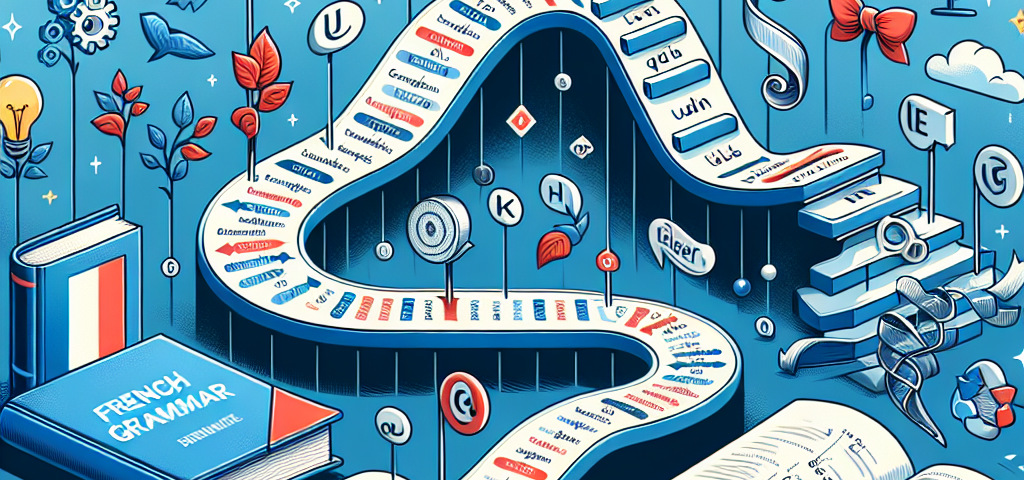
Your French Learning Toolkit: Best Apps, Websites, and Books
May 30, 2025
How to Create a Study Plan for Your Upcoming French Exam
May 30, 2025
Learning a new language can be a daunting task, yet mastering its grammar is essential for effective communication. French, with its intricate rules and elegant expressions, often presents challenges to learners. However, with a structured approach, anyone can elevate their French grammar skills from basic understanding to a brilliance that reflects fluency. This article offers a roadmap to enhance your French grammar, covering fundamentals, practical tips, and advanced techniques.
1. Understanding the Basics
a. Articles and Gender
French nouns are categorized as masculine or feminine, affecting the articles and adjectives associated with them. Begin by memorizing common nouns with their articles. Use flashcards or apps to reinforce your memory. Remember to practice using both definite articles (le, la, les) and indefinite articles (un, une, des).
b. Verb Conjugations
Verbs are the backbone of any language. French verbs can be regular or irregular, each following its own pattern. Start with regular verbs in the three groups: -er, -ir, and -re. Create charts for conjugations in different tenses, focusing on present, past, and future.
c. Adjective Agreement
In French, adjectives must agree in gender and number with the nouns they modify. Familiarize yourself with common adjectives and practice changing their forms appropriately. Engaging in exercises that involve filling in the blanks can be particularly effective for understanding adjective agreement.
2. Building Intermediate Skills
a. Tenses and Moods
Once you have a grasp of basic verbs and tenses, explore more complex structures like the subjunctive and conditional moods. Understanding when and how to use these tenses elevates your spoken and written French. Regular practice through writing sentences can help reinforce these structures in your memory.
b. Prepositions
Prepositions can be tricky in any language, and French is no exception. Regularly practice the most common prepositions (à, de, en, chez) through spoken and written exercises. Understanding how they interact with verbs and nouns can significantly improve your fluency.
c. Sentence Structure
French typically follows a Subject-Verb-Object order, but variations can occur. Study different sentence structures, including questions and negations. Start by transforming statements into questions and applying negation to familiar phrases.
3. Advanced Techniques
a. Nuances of Language
As you become more confident, pay attention to the subtleties of French grammar, such as the difference between “tu” and “vous” or the use of passé composé versus imparfait. Engage with native speakers, whether through conversation exchanges or language apps, to gain deeper insight into contextual usage.
b. Complex Sentences
Explore combining clauses to create complex sentences. Start with conjunctions like “et” (and), “mais” (but), and “ou” (or). Progress to more advanced linking words like “cependant” (however) and “bien que” (although), which will enrich your writing and speaking.
c. Writing Practice
Begin crafting short essays or diary entries in French. This practice solidifies your understanding of grammar rules and encourages you to think in the language. Use tools like grammar checkers and online forums for feedback.
4. Resources for Continuous Learning
a. Online Courses and Apps
Utilize platforms like Duolingo, Babbel, and Rosetta Stone to supplement your learning. These apps often gamify grammar exercises, making them enjoyable and effective.
b. French Literature and Media
Immerse yourself in French literature, films, and music. Pay attention to sentence structures, idiomatic expressions, and grammatical nuances. Reading aloud can help with pronunciation and reinforce grammatical patterns.
c. Language Exchange and Tutoring
Engaging with native speakers is invaluable. Participate in language exchange programs or hire a tutor who can provide personalized feedback. This interaction exposes you to natural language usage and helps refine your skills.
Conclusion
Elevating your French grammar skills from basic to brilliant involves a commitment to continuous learning and practice. By systematically mastering the fundamentals, building upon your knowledge, and exploring advanced techniques, you can achieve fluency. Remember, the journey is as rewarding as the destination. Embrace the beauty of the French language, and enjoy every step toward mastery. Bon courage!

